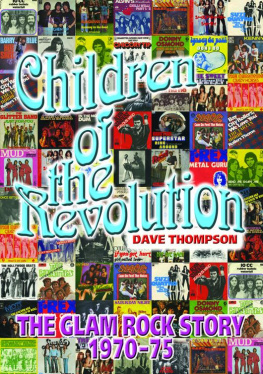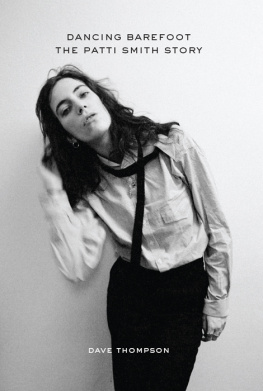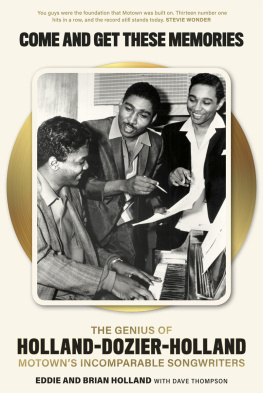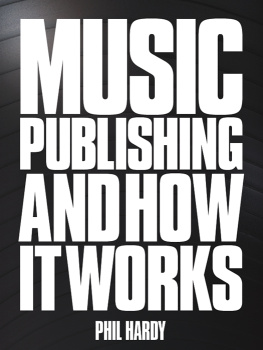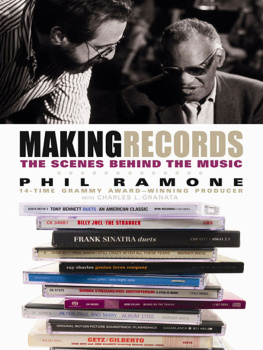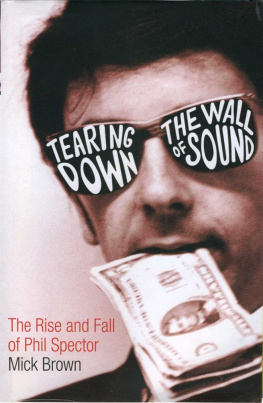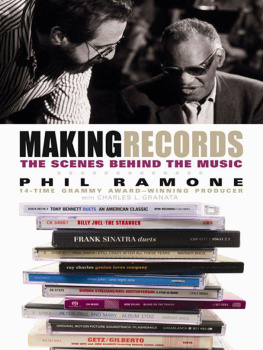Copyright 2010 Omnibus Press
This edition 2010 Omnibus Press
(A Division of Music Sales Limited, 14-15 Berners Street, London W1T 3LJ)
ISBN: 978-0-85712-216-2
The Author hereby asserts his / her right to be identified as the author of this work in accordance with Sections 77 to 78 of the Copyright, Designs and Patents Act 1988.
All rights reserved. No part of this book may be reproduced in any form or by any electronic or mechanical means, including information storage and retrieval systems, without permission in writing from the publisher, except by a reviewer who may quote brief passages.
Every effort has been made to trace the copyright holders of the photographs in this book, but one or two were unreachable. We would be grateful if the photographers concerned would contact us.
A catalogue record of this book is available from the British Library.
Visit Omnibus Press on the web: www.omnibuspress.com
For all your musical needs including instruments, sheet music and accessories, visit www.musicroom.com
For on-demand sheet music straight to your home printer, visit www.sheetmusicdirect.com

Acknowledgements
At a time when Phil Spector is making headlines for all the wrong reasons, it feels strange to be updating a book that celebrates him for what, outside of the tabloid gratuities that pass for news these days, seem to be the right ones.
In the years since police were called to his home in the Los Angeles suburb of Alhambra in February 2003, there to discover the lifeless body of actress Lana Clarkson, and even more so since a Los Angeles court sentenced him to spend the next two decades in prison, more articles and discussions on Phil Spector have been published and republished than appeared in the two decades before that, an astonishing deluge which, frankly, makes one wonder what there could possibly be left to talk about?
Certainly a considerable number of the friends, associates and former colleagues whom I approached for interviews as this book took shape felt that way. While several key names declined to speak at all, a number of others agreed to talk only on condition of anonymity, or else submitted prepared commentaries drawn from interviews granted elsewhere, earlier. Others still agreed to contribute strictly off-the-record, to either verify or deny incidents and stories to which other sources claim they were witness, and it was these conversations, perhaps surprisingly, that emerged the most illuminating. On more than one occasion, I entered an interview expecting to emerge with Wall Of Sound Babylon, only to leave with The Little Multi-Track On The Prairie; not because the information I was given in any way whitewashed the truth, but because, as indicated by subsequent researches, it was the truth.
Phil Spector is the subject of more urban legends than anybody else I have ever written about. Why that should be is, on reflection, obvious. Although society requires its idols and icons to seem glamorous, it also demands that they are accessible, in words and pictures if nothing else. Remove that accessibility and first, imagination; then invention will replace the daily updates from the entertainment pages.
Phil Spector, by the very nature of his chosen career, has never been accessible. So much of what he does takes place behind closed and sometimes secretively locked doors that he transformed his very existence into a mystery when the real mystery would have been his ability to live any kind of conventional superstar life while making those records. A record producer does not tour, does not make public appearances, does not appear on MTV, and rarely even gives interviews. He simply makes records and then goes home until its time to make the next one. Let the artist deal with all the other stuff.
To many people, however, those who admired the records and who were responsible for the manner in which Spectors name became synonymous with the groups he recorded, the producer himself was the artist, and the artists were simply the tools he used, no more or less important than the tape machines, the echo chambers, and the guy who played castanets on the B-side. But Spector would not play the whole game. He allowed the public to fete him, he accepted the superstardom. But he still went home once the record was finished. And so, to his admirers, he became a recluse. Then the recluse became an eccentric, the eccentric became a crazy man, and the crazy man became an even greater legend than Spector was in the first place.
And so the legend grew and, in doing so, it caused such a blurring of realities that, as I started this book, one of my own dearest friends (who himself appears several times in these pages) counselled me to be very careful about what I wrote, because the only way youll know if youve told the story is, if the story itself surprises you. He was right. With every interview I conducted, and every conclusion I drew, the surprises never stopped mounting up. And the biggest surprise of them all was, Im glad it worked out that way.
There are two ways of looking at a celebritys life.
The first is through the anecdotal testimony of the various first-hand witnesses to incidents that have since become a part of the public record the time he waved a gun at this person, or set the dogs on that one, the day he built the barbed wire fence.
That is the direction that ultimately condemned Spector to spend, pending appeal, what could be the rest of his life behind bars. In the eyes of his prosecutors, hed fired his gun before, so obviously he fired it again. He threatened one woman, so he must have killed another. Add to that the California judicial systems desperate need to prove that there isnt one law for the famous and another for the rest of us; that, just because the last couple of celebrity murderers got away with it, doesnt mean any others will, and cynical hindsight insists that Spector was always going to be found guilty regardless of the evidence.
That is one way of looking at a celebritys life. But there is another and, while it might not be so salaciously satisfying, it is just as valid, laying down the incontrovertible facts and then fleshing circumstance around them, to discover why he waved the gun, why he unleashed the dogs, why he built the fence. And then you discover that, maybe, he waved the gun because he was under attack, he unleashed the dogs because it was time for their walk, and he built the fence so they didnt walk too far. Which is a lot more reasonable and a lot less incriminating. But is it such a good story? Probably not.
But do we need those sort of stories? Unlike many of the famous faces that flash across our screens these days, after all, Spector actually achieved something in his life that will live on for years after those others are forgotten. Across two bursts of activity that spanned the dawn of the 1960s, then the whole of the 1970s, Phil Spector was responsible for some of the most remarkable records ever made, and some of the most unexpected.
From The Teddy Bears to The Checkmates, from The Ronettes to The Righteous Brothers, through his collaborations with The Beatles, Leonard Cohen and The Ramones, and onto his most recent work with Starsailor, Spectors achievements in the studio outweigh any of his misbehaviour out of it and, even if they didnt, still the catalogue of calumnies to which he can lay claim owes its deafening amplification more to a forty year game of Chinese Whispers, than it does to any consistent record of madness, malice or mayhem. Again, people want to know what their idols are up to, and if the idol doesnt tell them, then someone else will. (And youll never guess what I just heard about you, by the way.)


